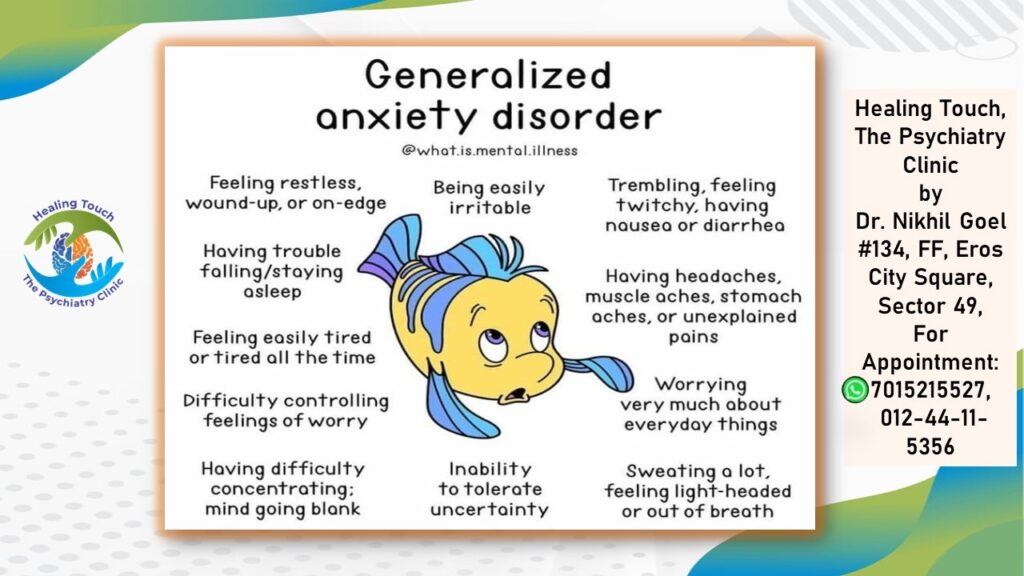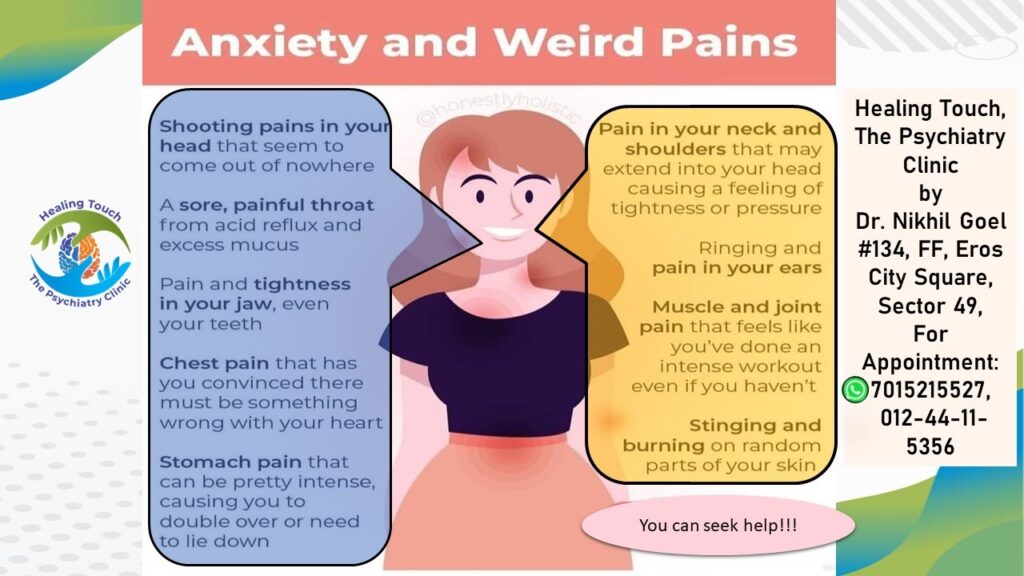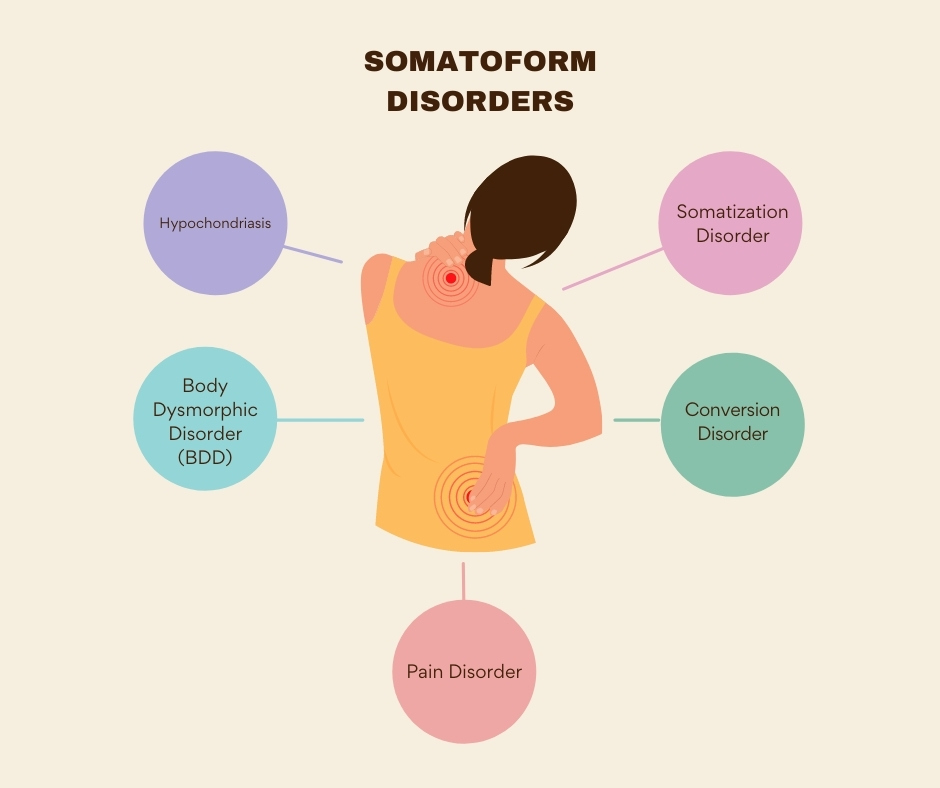Anxiety Disroder & Somatoform Disorder
Anxiety Disroder

The essential feature is anxiety, which is generalized and persistent but not restricted to, or even strongly predominating in, any particular environmental circumstances (i.e. it is “free-floating”). As in other anxiety disorders the dominant symptoms are highly variable, but complaints of continuous feelings of nervousness, trembling, muscular tension, sweating, lightheadedness, palpitations, dizziness, and epigastric discomfort are common. Fears that the sufferer or a relative will shortly become ill or have an accident are often expressed, together with a variety of other worries and forebodings. This disorder is more common in women, and often related to chronic environmental stress.

Somatoform Disorder

Somatoform disorder, now known as Somatic Symptom and Related Disorders, is a mental health condition in which an individual experiences physical symptoms that cannot be fully explained by an underlying medical condition. These symptoms can cause significant distress and impairment in daily functioning.
The symptoms of somatoform disorder may include pain, weakness, fatigue, gastrointestinal problems, or other bodily complaints that persist despite medical evaluations that do not identify any specific physical cause for the symptoms. Individuals with somatoform disorder may become preoccupied with their symptoms, excessively worried about their health, and may seek medical attention repeatedly, even after being reassured that there is no medical explanation for their symptoms.
The cause of somatoform disorder is not fully understood, but it is thought to be related to a combination of psychological and social factors. Individuals with a history of trauma or abuse, or those who have experienced significant life stressors, may be more likely to develop this condition. Additionally, individuals with anxiety, depression, or other mental health conditions may be more prone to developing somatoform disorder.

